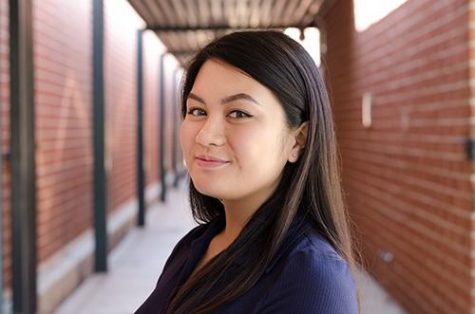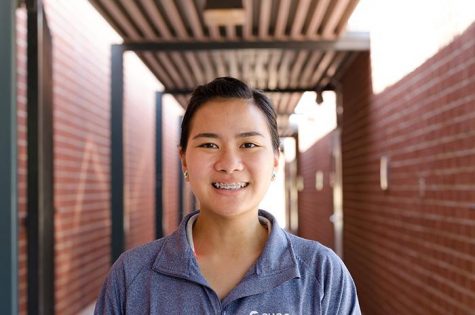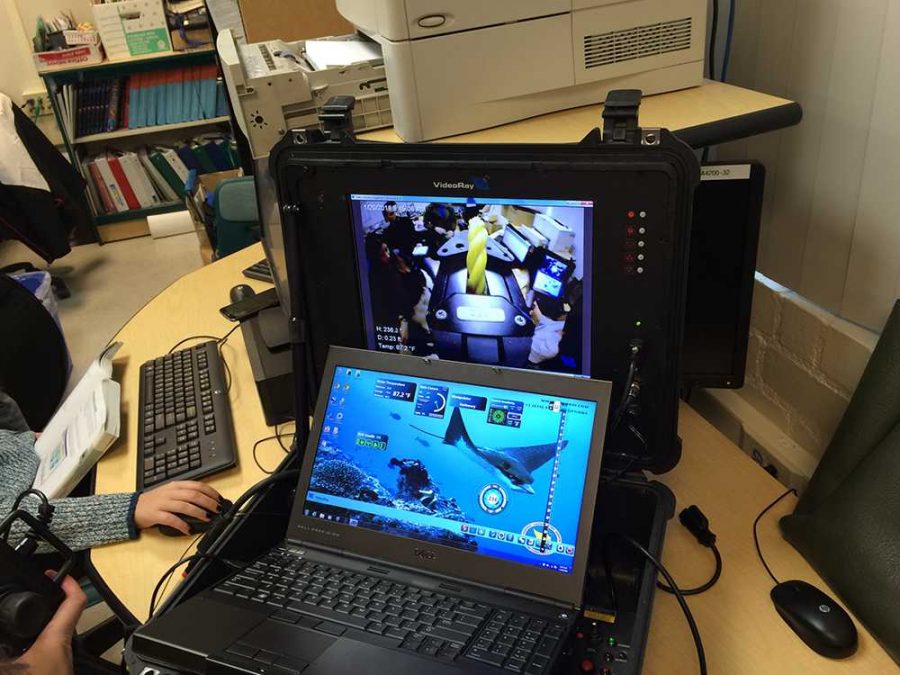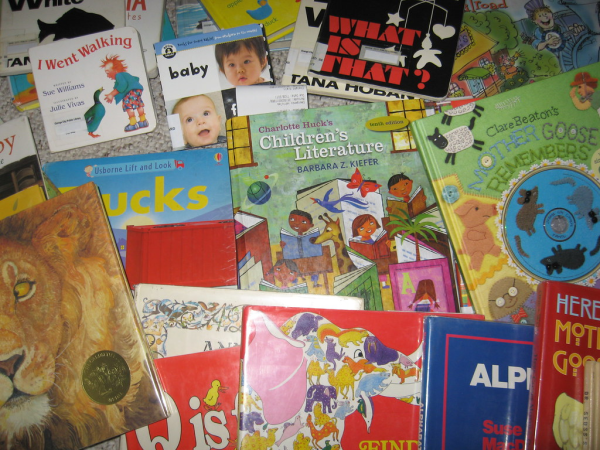Cricket Busters take the Air/Climate Eco Challenge by storm
An overlay of the ROV from the scientific research class. The Cricket Busters use the ROV in their field work to take footage of underwater depths starting at two hundred feet.
On Jan. 11, the Cricket Busters team received news that they had won the Air/Climate Eco Challenge and a prize of $10,000, right after snapping up the win for the Land/Water Eco Challenge, two parts of the yearly Lexus Eco Challenge. Both sub-challenges offer the participants the chance to complete the Final Challenge by Feb. 21, which can only be reached by winning one or both of the primary challenges.
The Cricket Cuddlers and Barobusters are two sub-teams of five people each, comprised by Fatma Abdel Rahman, Manuk Boyadzhyan, Karo Gairamanyan, David Ghukasyan, Khachatur Marutyan, Sipan Nazaryan, Aren Pariyani, James Rivera Espinoza, Cynthia Shamerzian and Devon Taylor. They cooperated with one another to form the Cricket Busters. This new team in Dominique Evans-Bye’s Environmental GIS class, set upon the task of addressing the issue of fossil fuels and renewable energy.
Clark has participated in the Lexus Eco Challenge since 2007, and has won seven out of eight times and $300,000 to date.
According to Evans-Bye, the students have “accepted the challenge by taking a stand and proving that a small group can bring about big changes.”
The team researched the costs and benefits of obtaining and using different energy sources, then created a map journal to educate people on the issue. They later created the GIS lesson plans, which they felt would help their community, around individual energy sources and distributed those to online education sites for teachers across the nation to use in their classrooms.
“The community is invited to support the team’s Action Plan,” said Evans-Bye, “by using social media such as Twitter to tweet about any insects they consume as part of a healthy, environmentally sustainable diet, or indulge with a cricket milkshake from Wayback Burgers using #CricketCuddlers and #SaveAFishEatABug. We also encourage deep sea fishers to always use descending devices when releasing fish suffering from barotrauma.”
After passing the qualifying challenges, the Cricket Busters’ main focus now is to take on the Final Challenge of the Lexus Eco Challenge to take home the Grand Prize of $30,000. Only two out of ten teams nationwide will be crowned the Grand Prize winners, while the eight First Place winners will receive $15,000 — all prizes in the form of grants and scholarships.
For the students who participated, winning the Air/Climate Eco Challenge is not all about the money, but rather a stepping stone to improving our planet’s condition. Senior Cynthia Shamerzian said that winning the money is a way of giving back to Clark and the community. She hopes that the efforts made in the Air/Climate Eco Challenge will help introduce the idea of new protein sources to younger generations. “We’ll have to switch to new protein sources, such as bugs, in the future whether we like it or not,” Shamerzian said. “I hope kids adapt to these new sources and appreciate them as well.”
Senior Sipan Nazaryan said that winning the Eco Challenge meant that they had made a change in the world. “It may be [something] small,” Nazaryan said. “But we’re getting there step by step in making the world a better place.”
Click here to read about the Cricket Busters’ experience tasting various bug dishes.
Click here for the story about The Cricket Busters winning the Air/Climate Eco Challenge.

Hobbies/Interests: writing, being annoying, making to-do lists, reading the to-do lists, complaining about the to-do lists, sleeping
Favorite Movie:...

Hobbies/Interests: photography, scrapbooking, traveling
Favorite Movie: Maleficent
Favorite Food: Ice Cream
Plans for the future: living a good life...










